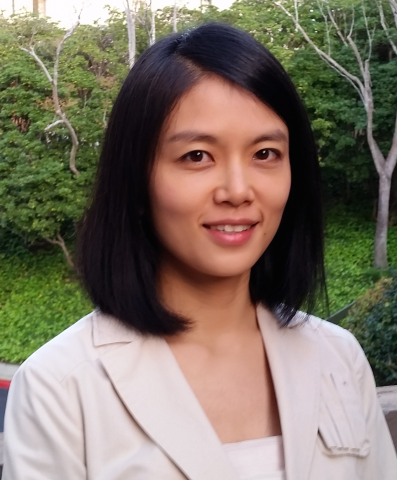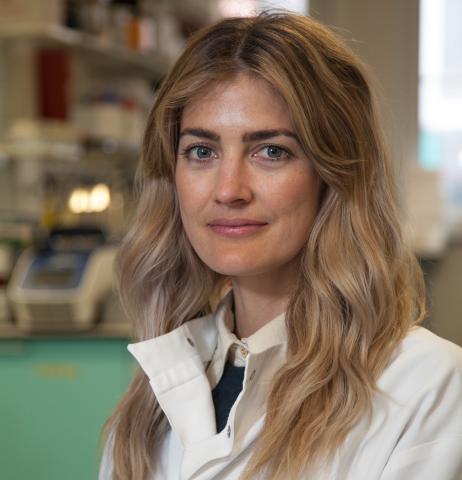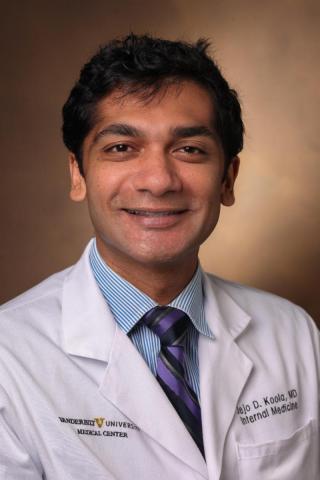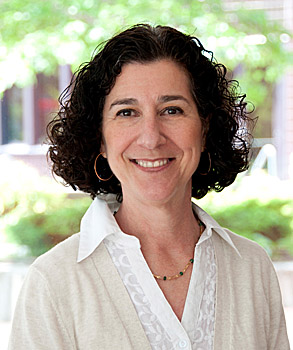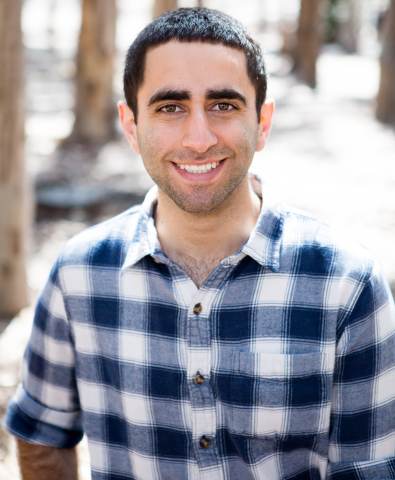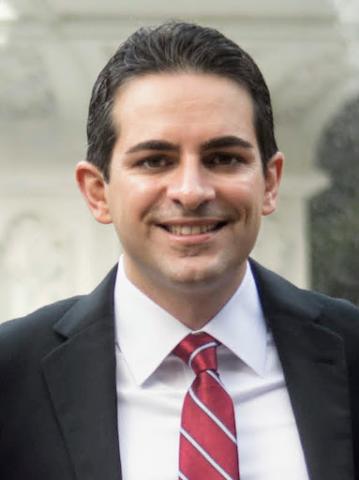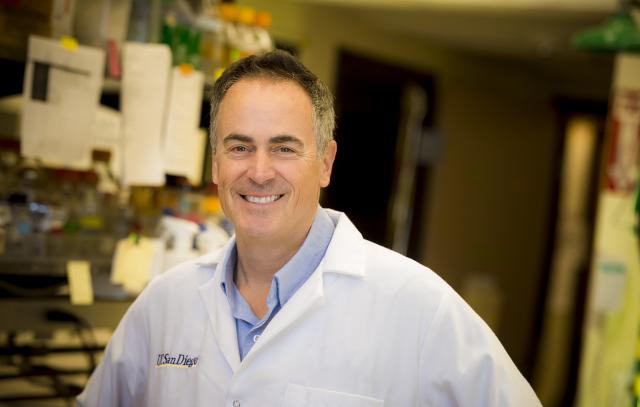Biomedical Informatics Faculty
View BISB Faculty Alphabetically or by Research Area
View BMI Faculty Alphabetically or by Research Area
View All Faculty Alphabetically or by Research Area
View Rotation Projects by Faculty: BISB or BMI
Ludmil Alexandrov
Associate Professor, Cellular and Molecular MedicineAssociate Professor, Bioengineering
- Quantitative Foundations of Computational Biology
- Comparative and Population Genomics
- Genetic and Molecular Networks
- Predictive Modeling and Personalized Medicine
- Biomedical Natural Language Processing
Research Focus: Using large-scale omics data to study mutational processes causing human cancer, identifying potential cancer prevention strategies with ML and NLP approaches, and developing novel ML tools for better targeting of cancer treatment.
Tiffany Amariuta
Assistant Professor, Halıcıoğlu Data Science InstituteAssistant Professor, Biomedical Informatics
- Comparative and Population Genomics
- Epigenomics and Gene Expression Control
- Bioinformatics Applications in Human Disease
Research Focus: We are a statistical genetics lab focusing on developing methods to study complex traits and polygenic diseases in global populations. We are specifically interested in fine-mapping disease genes and their cell types of action, with the goal of finding targets for gene-based therapeutics.
Ferhat Ay
Associate Professor, La Jolla Institute for ImmunologyAssistant Adjunct Professor, Pediatrics
- Epigenomics and Gene Expression Control
- Genetic and Molecular Networks
- Bioinformatics Applications in Human Disease
Research Focus: Epigenetics, genomics, chromatin structure, 3D/4D genome/nucleome, statistical methods for analysis of Hi-C and HiChIP data, gene regulation in immune cells, cancer genomics
Christopher Benner
Assistant Professor, School of Medicine- Epigenomics and Gene Expression Control
- Bioinformatics Applications in Human Disease
Research Focus:
Transcription, bioinformatics, genomics, innate immunity, chromatin.
We use next-generation sequencing (NGS) and computational analysis to understand the mechanisms responsible for transcription and epigenetic regulation in human development and disease.
Aaron Boussina
Assistant Adjunct Professor, School of Medicine- Predictive Modeling and Personalized Medicine
Research Focus: Adverse drug effect monitoring and disease phenotyping
Hannah Carter
Professor, Division of Genomics and Precision MedicineProgram Associate Director, Bioinformatics and Systems Biology
- Genetic and Molecular Networks
- Structural Bioinformatics and Systems Pharmacology
- Predictive Modeling and Personalized Medicine
- Bioinformatics Applications in Human Disease
Research Focus: Genomics and systems biology for precision cancer medicine, variant interpretation, network analysis, immunogenomics
Lukas Chavez
Associate Professor, Sanford Burnham PrebysAssociate Adjunct Professor, Division of Genomics and Precision Medicine
- Quantitative Foundations of Computational Biology
- Epigenomics and Gene Expression Control
- Predictive Modeling and Personalized Medicine
- Bioinformatics Applications in Human Disease
Research Focus: Genomic and Epigenomic Alterations in Childhood Cancers
Chi-Hua Chen
Associate Adjunct Professor, Radiology- Comparative and Population Genomics
- Predictive Modeling and Personalized Medicine
- Bioinformatics Applications in Human Disease
Research Focus: Neuroimaging genetics, neuropsychiatric disorders
Hiutung Chu
Associate Professor, Pathology- Quantitative Foundations of Computational Biology
- Comparative and Population Genomics
- Bioinformatics Applications in Human Disease
Research Focus: host-microbe interactions; gut microbiome; host genetic factors in immunity
Heidi Cook-Andersen
Assistant Professor, Biological SciencesAssistant Professor, Reproductive Medicine
- Epigenomics and Gene Expression Control
- Genetic and Molecular Networks
- Bioinformatics Applications in Human Disease
Research Focus: We integrate computational, epigenetic, RNA, and chromatin biology approaches in human, mouse and stem cell models to understand the earliest stages of development -- from the fully differentiated oocyte to the totipotent embryo and successful implantation of the human blastocyst.
Kit Curtius
Assistant Professor, Biomedical Informatics- Quantitative Foundations of Computational Biology
- Epigenomics and Gene Expression Control
- Predictive Modeling and Personalized Medicine
- Bioinformatics Applications in Human Disease
Research Focus: Mathematical models of cancer evolution, optimization of cancer screening and surveillance, epigenetic aging, translational risk prediction tools
Tal Einav
Assistant Professor, La Jolla Institute for Immunology- Quantitative Foundations of Computational Biology
- Dynamical Systems, Stochastic Processes, and Biological Circuits
- Predictive Modeling and Personalized Medicine
- Bioinformatics Applications in Human Disease
Research Focus: Antibody-virus interactions, predicting each person's vaccine response, personalized medicine
Robert El-Kareh
Clinical Professor, Biomedical Informatics- Predictive Modeling and Personalized Medicine
- Decision Support Systems
Research Focus: Clinical informatics, clinical decision support, diagnostic safety, quality improvement, patient safety
Kelly Frazer
Professor, PediatricsDirector, Institute for Genomic Medicine
- Epigenomics and Gene Expression Control
- Genetic and Molecular Networks
- Bioinformatics Applications in Human Disease
Research Focus: Using iPSCs for genetic analyses, GWAS, QTL analyses, bioinformatic approaches to understanding human disease, single-cell analyses
Terry Gaasterland
Professor, Scripps Institution of OceanographyProgram Director, Bioinformatics and Systems Biology
- Comparative and Population Genomics
- Epigenomics and Gene Expression Control
- Genetic and Molecular Networks
- Bioinformatics Applications in Human Disease
Research Focus: Computational Analysis of Human, Novel, and Microbial Genomes: Impact of genetic and evolutionary variation on regulation of transcription and on protein domain structure and function. Causal variants leading to dysregulated cellular response to environmental stresses.
Rodney Gabriel
Associate Professor, School of Medicine- Predictive Modeling and Personalized Medicine
Research Focus: Perioperative outcomes, pharmacogenomics, machine learning, predictive modeling, regional anesthesia, acute pain.
Fred (Rusty) Gage
President, Salk Institute for Biological StudiesProfessor, Laboratory of Genetics, Salk Institute for Biological Studies
Adjunct Professor, Biological Sciences
- Epigenomics and Gene Expression Control
- Dynamical Systems, Stochastic Processes, and Biological Circuits
- Predictive Modeling and Personalized Medicine
- Bioinformatics Applications in Human Disease
Research Focus: Adult central nervous system, Neurogenesis, Modeling neurondegenerative & neuropsychiatric disorders, Neuronal mosaicism & diversity, Human evolution; Somatic retrotransposition, LINE-1, & Alu
Joseph Gleeson
Professor, Neurosciences (School of Medicine)Director of Neurogenetics, Rady Children's Institute for Genomic Medicine
- Genetic and Molecular Networks
- Predictive Modeling and Personalized Medicine
- Bioinformatics Applications in Human Disease
Research Focus: Brain somatic mosaicism to understand development and disease
Michael Hogarth
Clinical Professor, Biomedical Informatics- Data Models and Knowledge Representation
- Biomedical Natural Language Processing
Research Focus: Development of next generation public health information systems, terminology/ontology infrastructure in biomedical informatics, and developing systems that support clinical research at the point of care.
Albert Hsiao
Professor in Residence, Radiology- Comparative and Population Genomics
- Bioinformatics Applications in Human Disease
Research Focus: Artificial Intelligence, Cardiovascular, COVID-19, x-ray, CT, MRI, Point-of-care Ultrasound
Lilia Iakoucheva
Professor, Psychiatry- Genetic and Molecular Networks
- Bioinformatics Applications in Human Disease
Research Focus: Autism, genetics, gene expression, protein interactions, systems biology, networks, psychiatric diseases, whole genome sequencing
Mohit Jain
Associate Professor, Pharmacology- Proteomics and Metabolomics
- Genetic and Molecular Networks
- Structural Bioinformatics and Systems Pharmacology
- Bioinformatics Applications in Human Disease
Research Focus:
Human Biology, Metabolic Biochemistry, Integrative Biology, Mass Spectrometry, Metabolomics
Susan Kaech
Professor, Salk Institute for Biological StudiesAdjunct Professor, Biological Sciences
- Proteomics and Metabolomics
- Epigenomics and Gene Expression Control
- Genetic and Molecular Networks
- Bioinformatics Applications in Human Disease
Research Focus: Understanding how Memory T Cells are produced during infection and vaccination
Jejo Koola
Assistant Clinical Professor, Biomedical Informatics- Predictive Modeling and Personalized Medicine
- Biomedical Natural Language Processing
Research Focus: Practicing internist in the field of hospital medicine and clinical informatics. Research focus is on using informatics tools (including predictive analytics, natural language processing, and information visualization) to improve the care of multi-morbid hospital patients.
Hojun Li
Assistant Professor, Pediatrics- Genetic and Molecular Networks
- Dynamical Systems, Stochastic Processes, and Biological Circuits
- Bioinformatics Applications in Human Disease
Research Focus: Multi-omic analysis of human patient samples, functional genomics of stem cells and hematopoiesis, blood disorders and leukemia
Amit Majithia
Associate Professor, School of Medicine- Comparative and Population Genomics
- Proteomics and Metabolomics
- Genetic and Molecular Networks
- Dynamical Systems, Stochastic Processes, and Biological Circuits
- Predictive Modeling and Personalized Medicine
- Decision Support Systems
- Bioinformatics Applications in Human Disease
Research Focus: Insulin resistance, functional genomics, pharmacogenetics, cardiometabolic disease, diabetes
Carolina Makowski
Assistant Professor, Psychiatry- Comparative and Population Genomics
- Genetic and Molecular Networks
- Predictive Modeling and Personalized Medicine
- Bioinformatics Applications in Human Disease
Research Focus: Bridging research across multiple scales of neuroscience, including insights from genetics/genomics, to model and predict adolescent psychiatric disorders
Andrew McCulloch
Professor, BioengineeringProfessor, School of Medicine
- Quantitative Foundations of Computational Biology
- Dynamical Systems, Stochastic Processes, and Biological Circuits
- Structural Bioinformatics and Systems Pharmacology
- Predictive Modeling and Personalized Medicine
- Bioinformatics Applications in Human Disease
Research Focus: Multi-scale biology of heart and musculoskeletal system to elucidate the biological principles underlying heart failure, congenital heart disease, arrhythmia and elite human performance
Jill Mesirov
Professor, School of MedicineAssociate Vice Chancellor, Computational Health Sciences,
Professor of Medicine, Division of Genomics and Precision Medicine
- Quantitative Foundations of Computational Biology
- Genetic and Molecular Networks
- Predictive Modeling and Personalized Medicine
- Bioinformatics Applications in Human Disease
Research Focus: Algorithms and analytic methodologies for pattern recognition and discovery with applications to cancer genomics, to better diagnose, stratify, and treat patients. Development of biologist-friendly biomedical software tools.
Niema Moshiri
Associate Teaching Professor, Computer Science and Engineering- Quantitative Foundations of Computational Biology
- Bioinformatics Applications in Human Disease
Research Focus: Computational viral epidemiology, phylogenetics, models of sequence and tree evolution, Massive Adaptive Interactive Text (MAIT) development
Shamim Nemati
Associate Professor, Biomedical Informatics- Dynamical Systems, Stochastic Processes, and Biological Circuits
- Predictive Modeling and Personalized Medicine
- Decision Support Systems
Research Focus: Signal Processing, Dynamical Systems, Multivariate Time Series, Point Process, Deep Learning, Reinforcement Learning, Video Processing, and Natural Language Processing
Pia Pannaraj
Professor, Pediatrics- Proteomics and Metabolomics
- Predictive Modeling and Personalized Medicine
- Bioinformatics Applications in Human Disease
Research Focus: Our research focuses on understanding how human milk, the gut microbiome, immunizations, and repeated infections impact infant immune development and protection from infectious diseases. Studies include integration of transcriptomics, metagenomics, and proteomics with immunological data.
Bjoern Peters
Professor, La Jolla Institute for Immunology- Quantitative Foundations of Computational Biology
- Dynamical Systems, Stochastic Processes, and Biological Circuits
- Predictive Modeling and Personalized Medicine
- Privacy Technology, Data Sharing, and Big Data Analytics
- Data Models and Knowledge Representation
- Bioinformatics Applications in Human Disease
Research Focus: Immunology, Adapative Immunity, Epitopes, Knowledge Representation, Infectious Disease, Cancer, Allergy, Autoimmunity, Machine Learning, Big Data, Systems Biology
Sandra Sanchez-Roige
Associate Professor, Psychiatry- Genetic and Molecular Networks
- Predictive Modeling and Personalized Medicine
- Biomedical Natural Language Processing
- Bioinformatics Applications in Human Disease
Research Focus: Our research aims to advance precision psychiatry using genetic, genomic, medical bioinformatic, and cross-species translational approaches.
Julian Schroeder
Professor, Biological Sciences- Genetic and Molecular Networks
- Data Models and Knowledge Representation
Research Focus: Heat and drought resistance mechanisms and network in plants and plant stress signal transduction. Discovery of signaling networks and biological sensors, using systems biological approaches, transcriptomics, proteomics and genome editing.
Jason Sicklick
Professor, SurgeryProfessor, Pharmacology
- Genetic and Molecular Networks
- Predictive Modeling and Personalized Medicine
- Bioinformatics Applications in Human Disease
Research Focus: Gastrointestinal stromal tumors (GIST), hepatocellular carcinoma (HCC), personalized medicine
Amy Sitapati
Clinical Professor, Biomedical InformaticsInterim Chief, Biomedical Informatics
- Predictive Modeling and Personalized Medicine
- Privacy Technology, Data Sharing, and Big Data Analytics
- Data Models and Knowledge Representation
- Decision Support Systems
Research Focus: Biomedical Informatics, Registries, Population Health, Precision Medicine, Vital Records Informatics, Artificial Intelligence, Quality Informatics, Health Analytics
Pandurangan Vijayanand
Professor, La Jolla Institute for ImmunologyAssociate Adjunct Professor, School of Medicine
- Comparative and Population Genomics
- Epigenomics and Gene Expression Control
- Bioinformatics Applications in Human Disease
Research Focus: Continually evolving genomic tools and single cell analysis technologies are revolutionizing our understanding of the human immune system in health and disease.
Timothy Wen
Assistant Professor, School of Medicine- Predictive Modeling and Personalized Medicine
- Decision Support Systems
- Bioinformatics Applications in Human Disease
Research Focus: Bridging clinical medicine, artificial intelligence, and digital product innovation to create user-centered technologies that improve decision-making, personalize care, and enhance the patient experience
Joel Wertheim
Associate Professor, School of Medicine- Genetic and Molecular Networks
- Bioinformatics Applications in Human Disease
Research Focus: Molecular epidemiology of HIV, SARS-CoV-2, and other RNA viruses; Viral phylogenetics and evolution
Dominik Wodarz
Professor, Biological Sciences- Quantitative Foundations of Computational Biology
- Dynamical Systems, Stochastic Processes, and Biological Circuits
- Predictive Modeling and Personalized Medicine
Research Focus: Mathematical models of infectious diseases, virus-immune system interactions, carcinogenesis, and cancer therapy; Evolutionary theory and evolutionary dynamics.
Rose Yu
Assistant Professor, Computer Science and Engineering- Quantitative Foundations of Computational Biology
- Dynamical Systems, Stochastic Processes, and Biological Circuits
- Predictive Modeling and Personalized Medicine
- Decision Support Systems
Research Focus: Machine learning, spatiotemporal modeling, deep learning, dynamical systems
Karsten Zengler
Professor, Pediatrics- Quantitative Foundations of Computational Biology
- Dynamical Systems, Stochastic Processes, and Biological Circuits
- Predictive Modeling and Personalized Medicine
- Privacy Technology, Data Sharing, and Big Data Analytics
- Data Models and Knowledge Representation
- Bioinformatics Applications in Human Disease
Research Focus: Our lab studies microbe-microbe and host-microbe interactions. The goals are i) to predict how complex systems react to perturbations and ii) to design strategies to change the trajectory.







